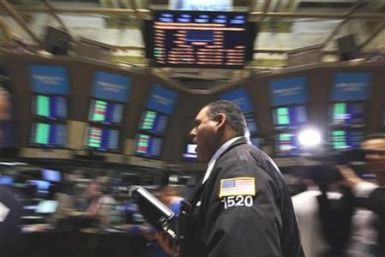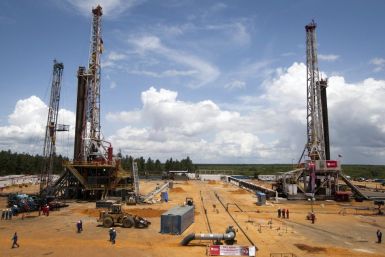A record-high Swiss franc and soaring raw material and energy costs pummeled cement maker Holcim's
U.S. wholesale prices outside of food and fuel rose at the fastest pace in six months in July as costs for tobacco and light trucks jumped, but weak consumer demand was seen keeping inflation in check at the factory gate.
U.S. wholesale prices outside of food and fuel rose at the fastest pace in six months in July as costs for tobacco and light trucks jumped, but weak domestic demand was seen keeping inflation pressures in check.
Core producer prices rose at their fastest pace in six months in July on strong tobacco and light truck costs, though weak domestic demand was seen keeping inflation pressures under control.
Core producer prices rose at their fastest pace in six months in July on strong tobacco and light truck costs, though weak domestic demand was seen keeping inflation pressures under control.
Core producer prices rose at their fastest pace in six months in July, pushed up by higher tobacco and light truck costs, according to a government report on Wednesday that could stoke inflation fears.
Stock index futures rose on Wednesday alongside oil prices and the euro, indicating a shift to risky assets ahead of U.S. inflation data.
Stock futures pointed to a lower open for Wall Street Wednesday, with investors believing that Tuesday's meeting between French and German leaders failed to make significant progress on the euro zone sovereign debt crisis.
Stock futures pointed to a lower open for Wall Street on Wednesday, with investors feeling that Tuesday's meeting between French and German leaders failed to make significant progress on the euro zone sovereign debt crisis.
Nigeria's headline inflation unexpectedly fell in July, data showed, reaching its lowest level for more than three years following an aggressive period of monetary tightening by the central bank.
Institutional investors, turned off by a slow-growth economy that?s led to low-return stocks, piled in to oil, driving up its price, worsening the economic conditions that led them to invest in oil in the first place.
Tanzania's inflation rose for the ninth successive month in July on the back of higher food and energy costs and analysts said it was set to keep rising due to a poor supply outlook for staple foods and the cost of importing oil.

































